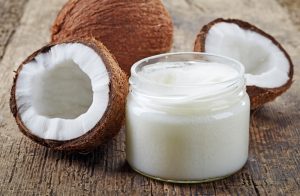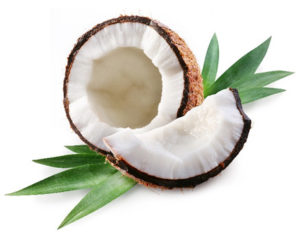Is The Impossible Burger Healthy For the Planet?
 Americans love their meat. In 2018 we averaged over 200 pounds of meat per person. If we just focus on beef, we eat about 54 pounds per year. That’s equivalent to four quarter pounders a week!
Americans love their meat. In 2018 we averaged over 200 pounds of meat per person. If we just focus on beef, we eat about 54 pounds per year. That’s equivalent to four quarter pounders a week!
But we are also getting the message that too much meat, especially red meat, may be bad for us. Nearly 40% of us are trying to eat a more plant-based diet.
The problem is that we love the convenience of fast food restaurants, and we love our burgers. Plus, in the past the meatless burgers on the market were, in a word, disappointing. Their taste and texture left something to be desired. You really needed to be committed to a plant-based diet to eat them in place of a regular burger.
That all changed a few years ago with the introduction of the and new generation of meatless burgers – the Impossible Burger and the Beyond Burger. They had the taste and texture of a real burger, but they were completely plant-based. What wasn’t to like?
- Both companies claimed that their meatless burgers were healthier for the planet than regular burgers. For example, Impossible Food’s mission statement is: “Animal agriculture occupies almost half the land on earth, consumes a quarter of our freshwater, and destroys our ecosystems. So, we’re doing something about it: We’re making meat using plants, so that we never have to use animals again”.
- Neither company claims their burgers are healthier for you. However, because their burgers are plant-based, the almost universal assumption has been that they are healthier than regular burgers.
Since their introduction they have taken the world by storm. You can find them in almost every supermarket and in many of your favorite fast food restaurants. Now that they are omnipresent, it is perhaps time to step back and take a closer look at this new generation of meatless burgers. In this article, I will ask two questions:
- Are they healthier for you than regular burgers?
- Are they healthier for the planet than regular burgers?
For the sake of simplicity, I will focus on the Impossible Burger with occasional comparisons with the Beyond Burger. It is beyond the scope of this article to compare these burgers with the many other meatless burgers that are now starting to flood the marketplace.
What’s In The Impossible Burger?
- When we think of a burger, the first thing we think of is protein. The Impossible Burger gets its protein from soy, while the Beyond Burger gets its protein from peas.
 However, soy and pea protein don’t give you the mouth feel, flavor, red color, and texture of a beef burger.
However, soy and pea protein don’t give you the mouth feel, flavor, red color, and texture of a beef burger.
- The mouth feel of a burger comes from its saturated fat. Both the Impossible Burger and Beyond Burger use coconut oil as their source of saturated fat.
-
- Coconut oil has gained a reputation as a “healthier” saturated fat. However, as I have discussed in my book, “Slaying The Food Myths”, we have no long term studies on the health effects of diets high in coconut oil. We don’t really know whether it is healthier than other saturated fats.
- The taste and color of a beef burger come from its heme content. Heme does not occur in the parts of plants we eat. However, heme is involved in nitrogen fixation, so it is found in the roots of some legumes.
-
- The Impossible Burger has genetically engineered yeast to produce a type of heme called leghemoglobin that is found in soy roots. The Beyond Burger uses beet juice extract and annatto for the color and unspecified “natural flavor” for the flavor.
- To get the texture of a beef burger, both the Impossible Burger and the Beyond Burger use maltodextrin, modified food starch, and a variety of other ingredients. They are both highly processed foods.
- Iron is another important nutrient you expect to get from a beef burger. The Impossible Burger contains 4.5 mg of iron and the Beyond Burger contains 5.4 mg of iron.
-
- However, that is only part of the story. When iron is attached to a heme molecule, it is more efficiently absorbed by our bodies. Beef burgers and the Impossible Burger contain heme iron. The Beyond Burger does not.
- In addition, the Impossible Burger adds in the vitamins, including B12, that we would expect to get from a beef burger. The Beyond Burger does not.
What Are The Pluses Of The Impossible Burger?
 There are some definite pluses for the Impossible Burger and Beyond Burger:
There are some definite pluses for the Impossible Burger and Beyond Burger:
- Both the Impossible Burger and Beyond Burger are made from plant-based ingredients rather than from meat.
- Both are cholesterol free.
- Both contain modest amounts of fiber (3 grams for the Impossible Burger and 2 grams for the Beyond Burger), while a meat burger contains none.
- Both are good sources of iron, and the iron in the Impossible Burger is heme-iron, which is efficiently absorbed by our bodies.
What Are The Minuses of the Impossible Burger?
 There are, however, some definite minuses as well.
There are, however, some definite minuses as well.
- Both the Impossible Burger and Beyond Burger are high in saturated fat. The Impossible Burger is higher in saturated fat and the Beyond Burger contains the same amount of saturated fat as a real burger. That’s important because the latest advisory of the American Heart Association warns that saturated fat increases our risk of heart disease (I have discussed this finding in detail in a previous issue of “Health Tips From the Professor”).
-
- The saturated fat in both burgers comes from coconut oil. However, as I discussed above, we don’t know whether coconut oil is better or worse for us than other saturated fats. The relevant studies have not been done.
- Both the Impossible and Beyond burgers are high in sodium. They have almost 5-times more sodium than a beef burger.
- The heme in red meat catalyzes the formation of N-nitroso compounds in our gut which increase the risk of colon cancer. We do not know whether the form of heme added to Impossible Burgers catalyzes the same reaction, but it is likely.
- Both plant-based burgers are low in protein compared to a beef burger (~20 grams versus 27 grams). On the other hand, 20 grams of protein is reasonable for a single meal.
- The plant proteins used for these burgers (soy for the Impossible Burger and pea for the Beyond Burger) are highly processed. They lack the phytonutrients found in the unprocessed proteins.
-
- The isoflavones found in soy are thought to decrease the risk of cancer and osteoporosis.
-
- The phytonutrients found in peas have antioxidant and anti-inflammatory benefits. They are also thought to decrease the risk of certain cancers.
- The Impossible Burger is GMO. The leghemoglobin is produced by genetically engineered yeast, and the soy is also GMO.
- Neither the Impossible Burger nor Beyond Burger are certified organic. Organic certification refers to how the plant was grown. Both burgers are highly processed. Many of the ingredients in both burgers came from factories, not farms.
Is The Impossible Burger Healthy For You?
 Now, it is time to return to the original question: “Is the Impossible Burger healthy for you?” Since it is plant-based, it would be easy to assume that it is healthier than a burger made from beef. However, when you look more closely, it is not clear that it is healthier.
Now, it is time to return to the original question: “Is the Impossible Burger healthy for you?” Since it is plant-based, it would be easy to assume that it is healthier than a burger made from beef. However, when you look more closely, it is not clear that it is healthier.
The manufacturers of the Impossible Burger and similar burgers have gone to the laboratory and have been successful at creating meatless burgers with the taste, mouth feel, and texture of real burgers. However, these improvements have come with a price.
- The Impossible Burger and similar burgers are higher in saturated fat than a beef burger. This means they may be just as likely to increase the risk of heart disease as a beef burger.
- The Impossible Burger contains as much heme as a beef burger, which means it may be just as likely to increase the risk of cancer as a beef burger.
- The Impossible Burger and similar burgers are highly processed. That means:
-
- The plant proteins no longer contain the phytonutrients thought to be responsible for some of their health benefits.
-
- They also don’t contain the vitamins you would expect to find associated with the plant proteins.
- The Impossible Burger and similar burgers are not organic. Even worse, the Impossible Burger is GMO.
On balance, we can’t really assume the Impossible Burger is any healthier than the beef burgers it replaces. Plus, if you include the usual condiments and add fries and a soft drink, any slight health benefits of the Impossible Burger will be lost.
It would be much healthier to choose a bean burger. They don’t taste like beef, but many of them are quite tasty. Plus, if you do some label reading, you can find ones that use only whole, unprocessed ingredients.
For example, I looked up the Organic Sunshine brand South West Black Bean burgers. It only provides half as much protein as an Impossible Burger, but all the ingredients are organic, non-GMO, and minimally processed. Note: I am not recommending a particular brand. However, with a little research I am confident you can find a healthy meatless burger with a taste you will enjoy.
Is The Impossible Burger Healthy For the Planet?
 Now, let’s look at the second question: “Is the Impossible Burger healthy for the planet?” The answer to this question seems obvious. As the Impossible Burger company states in their mission statement: “Animal agriculture occupies almost half the land on earth, consumes a quarter of our freshwater, and destroys our ecosystems”. It seems logical that any meatless burger would be an improvement.
Now, let’s look at the second question: “Is the Impossible Burger healthy for the planet?” The answer to this question seems obvious. As the Impossible Burger company states in their mission statement: “Animal agriculture occupies almost half the land on earth, consumes a quarter of our freshwater, and destroys our ecosystems”. It seems logical that any meatless burger would be an improvement.
If we are talking about a minimally processed black bean burger, like the one I described above, the answer is a clear yes. It is healthier for the planet. However, when you look more closely at the Impossible Burger, the answer isn’t as clear.
- As coconut oil has increased in popularity massive areas of untouched, forested land have been cleared for coconut plantations.
-
- These forested areas provide an essential ecosystem for animals and provide natural storm protection by absorbing rainwater. Therefore, coconut oil, like beef, also destroys our ecosystems.
-
- In addition, many of the coconut plantations use large amounts of chemical fertilizers which contribute to phosphate pollution and algae overgrowth in lakes, rivers, and coastal ocean areas. This also degrades our environment.
- The Impossible Burgers and similar meatless burgers contain many highly processed ingredients. Each of these ingredients imposes its own environmental burden. For example:
-
- Coconut oil is often processed with hexane, which is categorized as a hazardous air pollutant by the Environmental Protection Agency.
-
- In addition, coconut oil is primarily grown in the Philippines, Indonesia, and India. Transporting it to this country generates significant greenhouse gas emissions.
-
- And, of course, coconut oil represents only one of the many highly processed ingredients in the Impossible Burger and similar meatless burgers.
In short, the Impossible Burger may be slightly healthier for the planet than a beef burger, but it is much less environmentally friendly than your typical, minimally processed, bean burger.
The Bottom Line
Two weeks ago, I wrote about recent headlines claiming that the best advice for the American public was to eat as much red meat as they like. I looked at the study behind the headlines and pointed out the many flaws in that study.
Last week I wrote about headlines claiming that red meat was just as heart healthy as white meat. I looked at the study behind the headlines and showed it was an excellent example of how the beef industry influences the design of clinical trials to minimize the health risks of red meat. It is also an example of how the media misleads and confuses the public about the effect of nutrition on their health.
What the studies I reviewed the last two weeks really showed was that very small amounts (2-3 ounces) of very lean red meat is probably OK as part of a healthy diet like the Mediterranean diet. Larger servings of fattier cuts of red meat as part of the typical American diet is problematic.
However, if you love your burgers, what are you to do? Are the meatless burgers like the Impossible Burger and Beyond Burger that are showing up in your favorite fast food restaurants the answer? Specifically, you are probably asking:
- Is the Impossible Burger, and similar burgers, healthy for you?
- Is the Impossible Burger, and similar burgers, healthy for the planet?
I looked at the composition, pluses, and minuses of this new generation of meatless burgers in this article. The bottom line is:
- On balance, the Impossible Burger is only slightly healthier than the beef burgers it replaces. And, if you include the usual condiments and add fries and a soft drink, any slight health benefits of the Impossible Burger will be lost.
It would be much healthier to choose a bean burger. They don’t taste like beef, but many of them are quite tasty. Plus, if you do some label reading, you can find ones that are organic, non-GMO, and use only whole, unprocessed ingredients.
- Similarly, the Impossible Burger may be slightly healthier for the planet than a beef burger, but it is much less environmentally friendly than your typical, minimally processed, bean burger.
For more details, read the article above.
These statements have not been evaluated by the Food and Drug Administration. This information is not intended to diagnose, treat, cure or prevent any disease.




